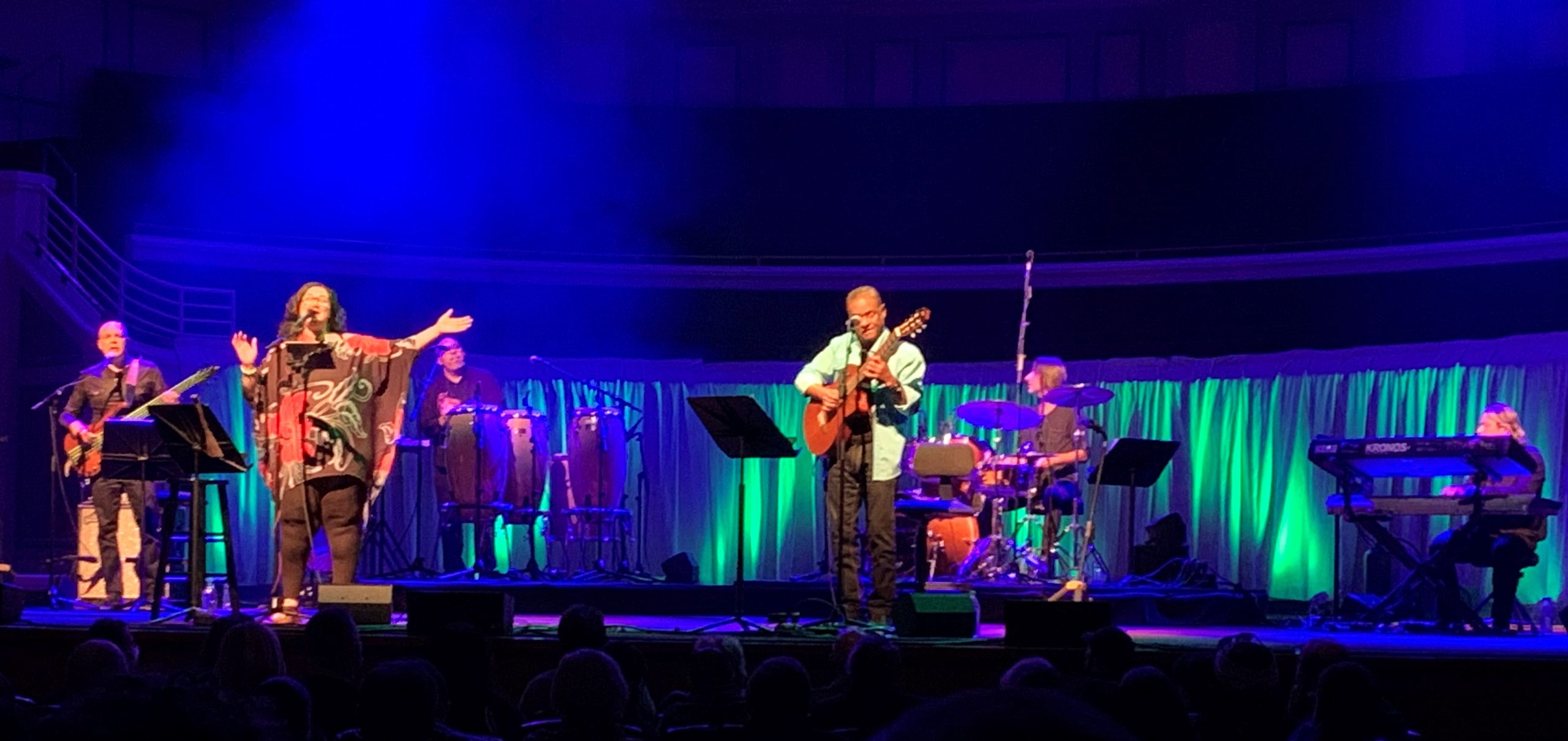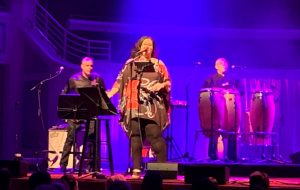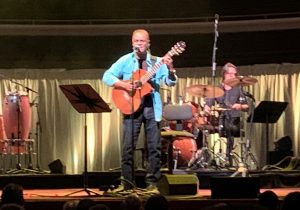
Brazilian All Stars – Photo by Tom Alvarez

Diana Purim and the Brazilian All Stars – Photo by Tom Alvarez
Though I have yet to visit, my love affair with everything Brazil began when I saw the classic film “Black Orpheus” as a college student and shortly after became a fan of Sergio Mendes & Brasil ‘66 and singer Astrud Gilberto. So, being immersed in the distinctive music of the largest country in South America and Latin America on Saturday performed by the Brazilian All Stars, Saturday at The Palladium was an opportunity of a lifetime for me.
On a North American tour, Brazilian All Stars, some of that country’s most prominent musicians, have performed all over the globe in some of the world’s most prestigious venues. The group includes soprano Diana Purim, who provides lead vocals. Connecting with the audience through her easygoing banter, sweet-sounding voice and subtle styling, she was ideal in her role as the group’s spokesperson. Purim is the daughter of Flora Purim (often referred to as the “Queen of Brazilian Jazz”) and percussionist Airto Moreira.
Sharing lead vocals with Purim and shining in duets with her was golden-toned Kleber Jorge. On percussion and lending vocals was Krishna Booker, Purim’s husband, who is also related to jazz royalty as the son of jazz bassist Walter Booker, nephew of Wayne Shorter and godson of Herbie Hancock. Sandro Rebel exceled on keys, as did bassist Leo Nobre, who also sang vocals. Finally, adding even more firepower to the group’s formidable sound and artistry was drummer Sandro Feliciano.
During their Palladium performance, playing to a relatively sparse crowd (unfortunately), the band performed many of the country’s most famous songs, sambas, bossa novas, ballads, choro, fado and more as they interpreted a fusion of styles that make for the unique sound Brazil’s music if known for. Those styles include Portuguese, American Jazz, Cuban and African rhythms, plus additional influences from other South American regions.

Leo Nobre and the Brazilian All Stars – Photo by Tom Alvarez
Having become familiar with the Brazilian music repertoire over the years, nevertheless, I was surprised I knew so many of the songs performed by the group. Most became popular in the U.S. because they were recorded with the vocalists singing a combination of both Portuguese and English. The All Stars Act 1 included such classic hits such as “Samba de Uma Nota Só” (“One Note Samba), “Garota de Ipanema” (“Girl From Ipanema”), “Samba de Verão” (“Summer Samba”), “Aquarela do Brasil” (“Brazil”).
Highlights in Act 2 were “Corcovado” by one of Brazil’s beloved and most famous composers, Antônio Carlos Jobim, “A Felilcidade,” a tender love song titled “Dindi,” a duet featured in “Águas De Março,” and the finale, “Más Que Nunca,” that compelled a group of audience members to take to the aisle and dance to a prolonged version of the classic.
I find Brazilian music to be as laid back as it is exuberant, romantic and joyous and it seemed the engaged audience was equally mesmerized. Ultimately, the two-hour concert was a totally uplifting experience that transported me to distant locations in a county known for its multicultural and racial diversity, rainforests, four-day Carnival held annually in Rio de Janiero, and its generous and optimistic people. Thousands of miles away from their home, the All Stars couldn’t have been better ambassadors for sharing their culture through music that is as exotic and intriguing as the country that created its sound.
For tickets and information about the 2021-2022 season at the Palladium at the Center for the Performing Arts, visit thecenterpresents.org.





